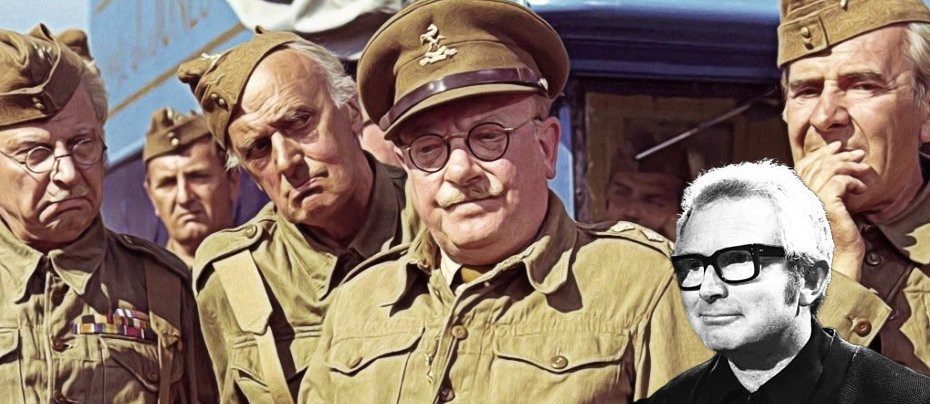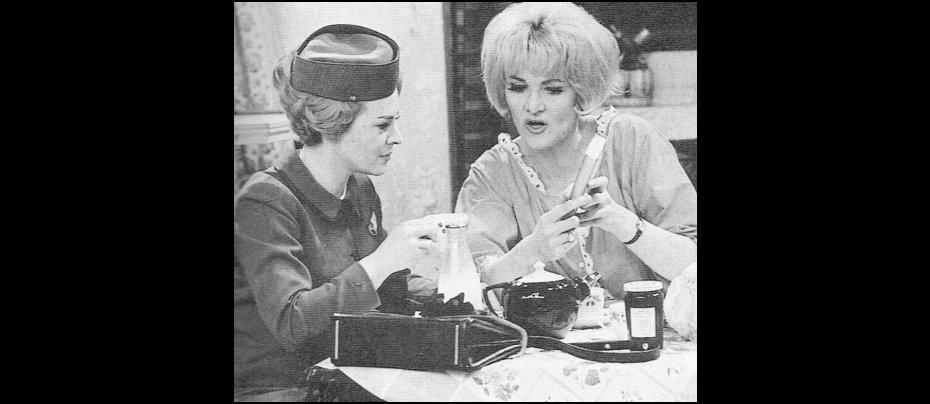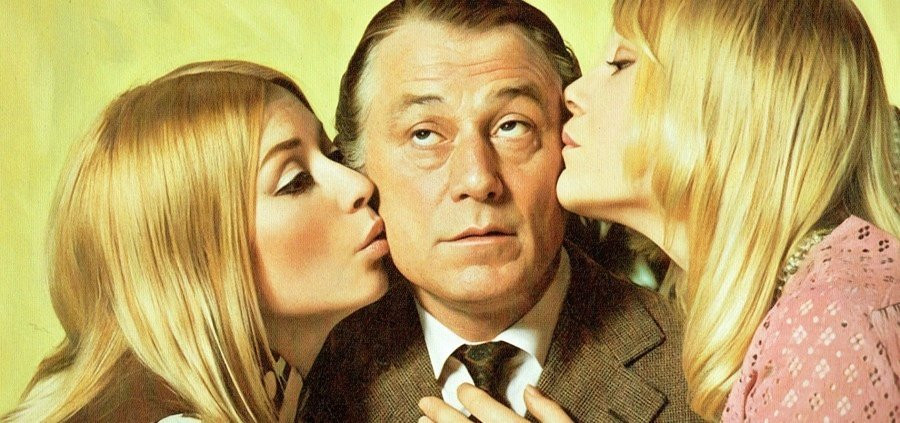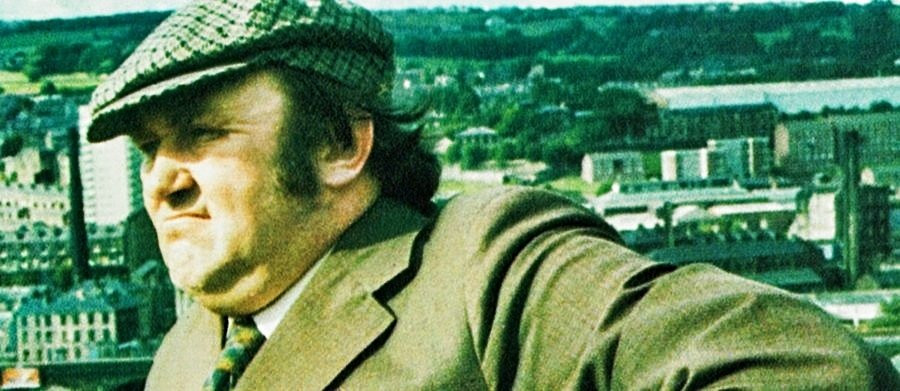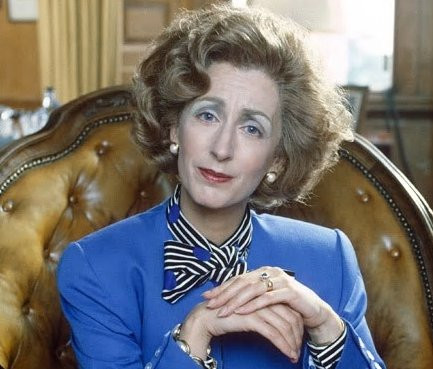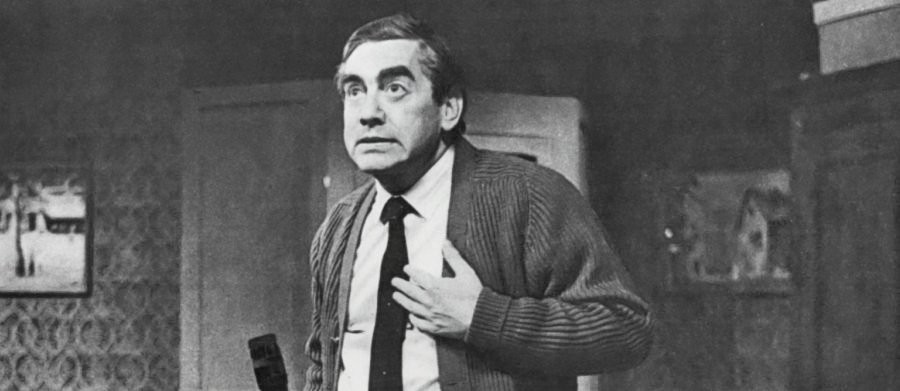
Hancock
1963 - United KingdomIn this series, Hancock is the man standing on the street corner, watching avidly as the world passes by him. He's a lonely figure and we freeze him there, I suppose, as a symbol of all the street-corner-stander-atters who never seem to participate in life but are faced, because of their unfortunate personalities, with playing the unjoyous role of outsider. He's still the old, rootless Hancock living in digs, but the new series will concentrate more on plot and story-line than the subtleties of character which were his great strength in the past.
The Essence of each situation is that he has to go out and pursue life- it never comes to him. And when he does get himself involved, he can only snarl things up because of his rather pompous, unfortunate manner. Yet he is forced to continue chasing life, whatever the consequences. In one episode, for instance, he witnesses a bank robbery. This would complicate things for most of us; for Hancock it spells almost total disaster. He begins blubbing loudly about what he has seen, glad of an audience. The bubble bursts when he gets a warning from the gang that they plan to silence him. The loud-mouthed hero abruptly turns into a quivering, jelly-like mass of nerves.
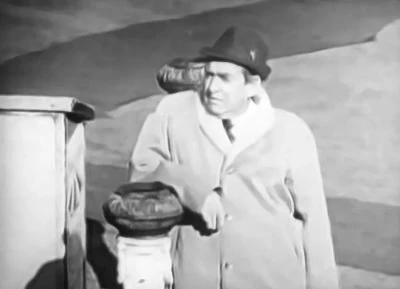
Nothing, of course, can stop him. Episode by episode he is irresistibly drawn to that street corner, magnetised by another predicament. Without really intending to, he suddenly finds himself impersonating a Group Captain. Next he finds himself entangled with the Secret Service.
Once, he even falls in love. Hancock in love? But don't worry, he resents it.
Hancock will continue without a foil. All the other characters in the series will be strictly straight - they are people like Denholm Elliott, Francis Rowe, Peter Vaughan and Dennis Price. They will not be playing for laughs at all, for the essence of the situation is that the story-line should be credible. It is only with the intrusion of the pompous Hancock character that the whole thing begins to become zany.
(TV Times 28 December 1962)
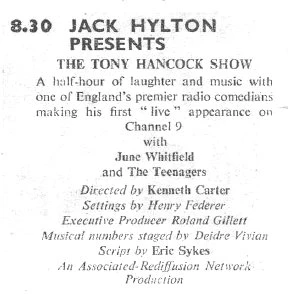
After unceremoniously dumping his agent Beryl Vertue and his long-standing scriptwriters, Galton and Simpson, Tony Hancock then defected to what in those days was termed ‘the other side’ – namely, Independent Television. It wasn’t the first time he’d worked for ITV. In fact, it was on Associated Rediffusion that Hancock had his first tv series. Already a major star of radio (48 episodes of Hancock had been recorded in 3 years) ‘the lad’ was offered a six-week run by ITV which began broadcasting on 27 April 1956. However, the series was not written by his usual scriptwriters, Galton and Simpson, as the BBC, quite naturally, didn’t want to lose the writers or the format of the hugely successful radio series to anyone else. What transpired at ITV was The Tony Hancock Show, a series of sketches penned by Eric Sykes. Five weeks after the ITV series finished, the BBC launched Hancock’s Half Hour and the rest, as they say, is television history.
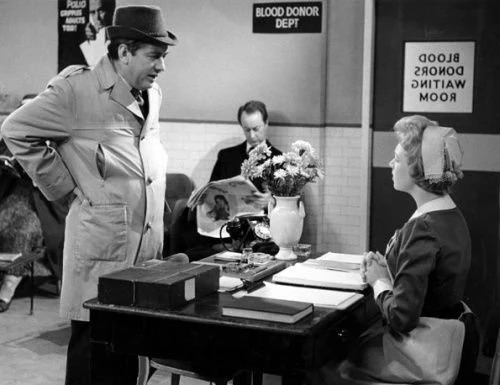
Despite going into his last BBC television series without Sid James, who had been with Hancock from the very first radio show until the final Hancock’s Half Hour on 6 May 1960, the show, now simply renamed Hancock, saw the comedy actor reach even greater heights of success. Episodes like The Bedsitter, The Lift and particularly The Blood Donor have gone down in sitcom legend. Unfortunately, to the knowing eye, there was something distinctly amiss. As result of a car crash just a few days before he was due to shoot The Blood Donor, Hancock suffered concussion after his head shattered the windscreen of the car his wife had been driving, and for the next few days he was unable to learn his lines. The BBC had the choice of postponing the show or doing it with prompt cards. Hancock decided to do it with the cards, and it came as such a relief to him, not to learn half an hour's script, that it stayed with him and he never learned another line for the rest of the series.
Alan Simpson claims that if you watch Hancock in The Blood Donor it's very obvious, even though nobody noticed it at the time. “It got worse years later when he went on to do other shows on ITV. John Le Mesurier told us on one show he wasn't even turning up for rehearsals. They would block it with a stand in, and he would come in for the recording. His face would be just like a mask with no expression. But Hancock's performance was all about his expression, his timing and his reactions.”
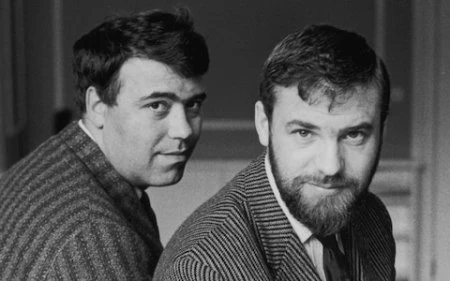
The BBC had tried to get Hancock to stay and do another series and even tried to entice him by offering other projects as well such as the lead in a play, The Form by N.F. Simpson (an English playwright closely associated with the Theatre of the Absurd), but he turned them down. Instead, he did a deal with Bernard Delfont who then presented the series as a package to Lew Grade at ATV. As ITV had been trying to entice Hancock away from the BBC for years, they were not going to miss this opportunity. There was even a suggestion that they’d try and get Galton and Simpson on board as scriptwriters, although the manner of their dismissal by Hancock had left them deeply upset and it is doubtful they would even have considered going back. In any case, they were now committed to writing the second series of Steptoe and Son.
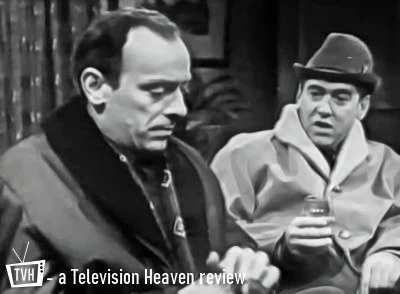
ITV signed up as many well-known names, familiar faces and rising stars as they could find for the new series which would also be titled Hancock, possibly in the hope that viewers would believe it a continuation of the final BBC series. As well as those names appearing in the above TV Times article you can add Kenneth Griffith, Patrick Cargill, Barbara Mitchell, Derek Nimmo, John LeMesurier, Pauline Yates, Wilfrid Lawson, Adrienne Posta, Allan Cuthbertson, Donald Hewlett, Harry Towb, Brian Wilde, Pete Murray (the radio and TV DJ), Geoffrey Keen, Sheila Bernette, Joan Benham, John Junkin and Francis Matthews. Hancock then decided to take on the extra responsibility of producing the series himself.
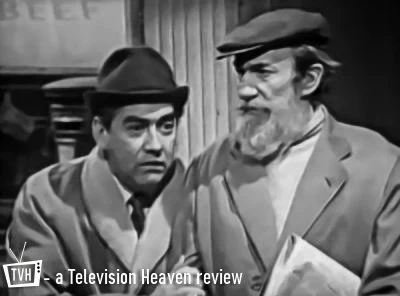
Executive producer was the prolific Alan Tarrant who had heard of Hancock’s reputation for using prompt cards, but when shooting started he didn’t experience it first hand. Far from it in fact. Tarrant would later tell that Hancock worked tirelessly to perfect every part of his performance, sometimes working through the night to get the right ‘look’ or find the right word if he thought the scriptwriters’ one didn’t quite hit the mark. However, despite his best efforts, things began to fall apart as the series progressed.
Hancock had previously suggested to the BBC that his shows be recorded without a live audience and then played back on a television screen to a studio audience, at which point their reaction could be recorded and ‘dubbed’ for the purpose of the transmission. Believing that Hancock gave his best performances when reacting to a live audience the BBC (in particular Duncan Wood) vetoed this idea. Alan Tarrant didn’t. The first few scripts were written by Godfrey Harrison, a gifted scriptwriter who had the unfortunate reputation of being unable to stop his scripts from being overlong and also of delivering them at the eleventh hour. Originally Tarrant and Hancock planned to allow four weeks preparation time before shooting the first episode, but Hancock decided to go on a theatrical tour which finished less than two weeks before the series went in front of the cameras. As the series progressed, Harrison’s scripts came in later and later and often had to be heavily edited to fit the half-hour time slot. After a few weeks the scripts began arriving incomplete with the last page being handed in on the morning of recording. New scriptwriters had to be quickly found which meant that continuity of character went out of the window.
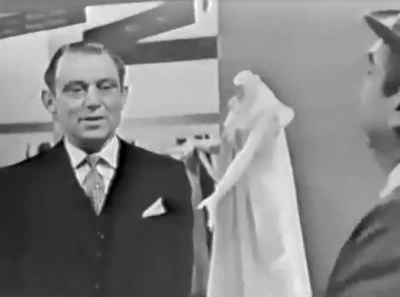
The first recording took place on 4 November 1962 with the series due to be transmitted in January 1963, so there were a number of episodes ‘in the can’ before the public saw them. Tarrant had decided to change the order of the shows to give the series more balance and the first show to go out at 8.30pm on Thursday 3 January was The Assistant, an original story by Ray Whyberd (the pen-name of English ventriloquist and television entertainer Ray Alan) which was written by Terry Nation.
It was savaged by the critics.
Michael Gowers, writing in the BFI publication Contrast gave his opinion of Hancock:
Probably the most widespread interest centred on the new Hancock. How, one wondered anxiously, would he fare in his efforts to get away from the suburban dead-end of East Cheam?
On the early showing of his ATV series, the answer must be – not very well. I admire and understand the desire to break new ground but the changes have been for the worse. Gone are the lugubriously symbolic homburg and astrakhan collared coat, gone the atmospheric Railway Cuttings, gone the implied social comment in the writing. And the fainter substitutions have notably failed to give the basic character anything hard to bite on. This is Hancock seen through a haze, pushed by guest stars from his essential pivotal position, lost in an undefined environment. There are still flashes of his comic creative genius but they have to be searched for.
There are more fundamental reasons for their dissipation. For one thing, Hancock’s own financial stake in the shows has naturally made him keen to offer America a marketable proposition and there may be something in his feelings that the old image or anything as particular and idiosyncratic would not attract buyers.
For another, ITV, with very rare exceptions, has never understood the business of situation comedy, seeming content to present character comedians within the loose variety format. I would say, for example, that Arthur Haynes’ progress has been blocked by such thinking, whereas the BBC’s experience, acquired with infinite patience, care, perseverance, and the will to adventure, has now blossomed into a comedy tree, continually pushing out new shoots.
Hancock’s situation was rendered all the more piquant by the fact that immediately before him on Thursday evenings the BBC restored ‘Steptoe and Son,’ the greatest triumph of his former scriptwriters, Alan Simpson and Ray Galton.
It would be difficult to estimate how far this slice of life in the junkyard of Wilfrid Brambell and Harry H. Corbett, who can wipe the smile from your face one minute and restore it twice its width the next, has extended the boundaries of situation comedy. What is firmly established is that Hancock needed Galton and Simpson more than they needed him.
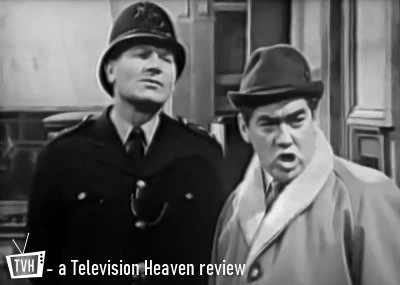
The impact of the reviews was immediate. Hancock’s name itself was enough to ensure healthy viewing figures for the first show but by the end of the month it had fallen out of the top twenty. The next recording block took place in January, but Hancock had already lost interest in recording them. He resorted to using the prompt cards again, unable to work up any enthusiasm to learn the scripts. Tarrant remonstrated with Hancock over their use, but the star insisted that viewers wouldn’t notice the difference. The sad truth was that even if they did – there were hardly any viewers left who watched the show.
It would be four years before Tony Hancock was given another situation comedy series. Hancock’s (ITV 1967) found him as the manager of a swinging London nightclub. It also failed to make a hit with the public and Hancock began to withdraw and took to excessive drinking. In 1968 he flew to Australia to make The Tony Hancock Show, a proposed 13-week series. Only three episodes were made before Tony Hancock took his own life leaving a suicide note that read, ‘Things seemed to go wrong too many times.’
Seen this show? How do you rate it?
Seen this show? How do you rate it?
Published on October 13th, 2021. Written by Marc Saul for Television Heaven.



